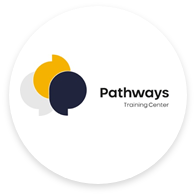
Strengthening Nicaraguan teachers’ English skills to improve national fluency


Esteemed institution UAM was tasked with providing affordable, accessible and verifiable training and certification for public school English teachers in support of the government’s initiative to prioritize English proficiency nationwide. Bridge helped UAM select the right certification, and now over 60 teachers have been fully prepared and qualified.
Prioritizing English language proficiency
Universidad Americana in Managua (UAM), Nicaragua, sought affordable, accessible, and verifiable teacher training qualifications for public school English language teachers. This training would support a national government initiative to prioritize English language proficiency in the country as a key to success in a globalized world.
Challenge
A Need for More Teacher Training Support in Nicaragua
According to Hope García, Academic Coordinator of the UAM Language Center, “Nicaragua is in permanent need of educational support. One of the major goals of the government is to increase the quality and skills of English teachers.”
“The government is committed to provide the highest quality to their projects,” Hope explains, “therefore it relies on the expertise of well-established and recognized educational institutions such as Universidad Americana to deliver and guarantee the expected results.”
The university needed to quickly select and implement a comprehensive TEFL/TESOL certification course for teachers that was affordable and accessible to trainees of varying English levels, and fully accredited.

“The government is committed to provide the highest quality to their projects”
- Hope Garcia, UAM Language Center Academic Coordinator
Solution
Making Training More Accessible
"UAM found themselves looking for a teacher training program of quality that would benefit their groups of Nicaraguan teachers. They reached out to us, and we immediately provided a viable solution for this group."
- Andrew Johnson, Bridge International Outreach Manager
“UAM found themselves looking for a teacher training program of quality that would benefit their groups of Nicaraguan teachers. They reached out to us, and we immediately provided a viable solution for this group,” says Andrew Johnson, International Outreach Manager at Bridge.
After consulting with Andrew about the specific course components and learning objectives their teachers required, UAM chose the Bridge 100-Hour Certificate in Teaching English as a Foreign Language (TEFL). The program covers the essentials of English teaching methodology, including effective instructional strategies, lesson planning, classroom management, and teaching English grammar.
The 100-Hour Certificate was the right training solution for UAM and its teachers because:
- Teachers were able to start immediately and finish within weeks.
- Teachers could train at their own pace via the online learning management platform, making the course highly accessible.
- The 100-hour, accredited training fulfilled the requirements and learning objectives outlined in the initiative
- UAM had the ability to track teachers’ performance in the course to measure and report on the success of the initiative.
Results
Ensuring Teacher Success After Training
UAM offered the program in November of 2020 and a total of 65 teachers graduated. These graduates completed the following components, earning a grade of 70% or higher in order to receive their verifiable 100-hour TEFL certificate and digital badge:
- 13 modules of core English teacher training
- 4 modules of training in teaching English grammar
- 15 written assignments
- 29 graded assessments
The overall satisfaction rate of the teachers in the program has been high. 83% of the course trainees would recommend Bridge to a colleague and 94% of teachers said the program has helped them improve as English teachers.
“I learned a lot of strategies and methods to teach in a better and meaningful way.”
- Javier Antonio Castillo Cuadra, Bridge course graduate
Impact
Hope describes how the long-term impact of the program is measured, saying, “The government has developed a follow-up system in order to track the teachers’ performance and contribution from their classrooms. The system consists of scheduled visits to document their new strategies and review the effect on the learning outcomes.”
By applying the teaching strategies and practical skills they’ve learned in their classrooms, UAM-trained public school English teachers will be well equipped for the challenge of improving student outcomes.
The Bridge professional development program has allowed UAM to meet its teacher training goals and fulfill the standards set by the Nicaraguan government, which, in turn, supports the nationwide initiative of increasing Nicaraguans’ English proficiency for global success.








